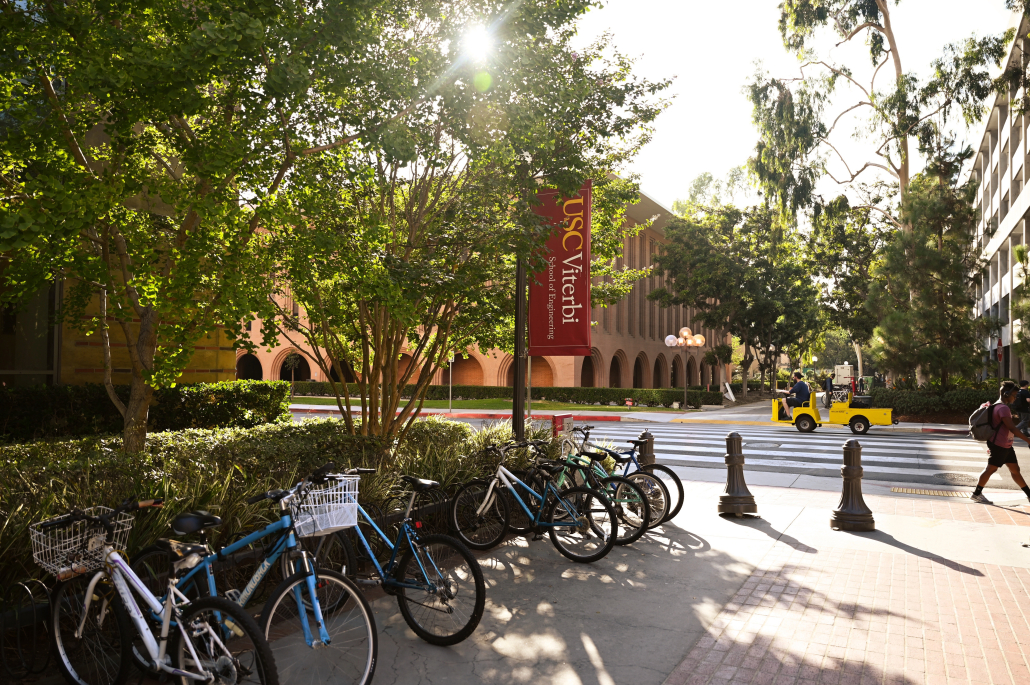USC graduate student workers file for union election

A broad coalition of USC graduate student workers filed for a union election Wednesday, a move that could grant the workers the power of collective bargaining — and the strike — in labor negotiations with the University.
Any strike would be far out, if one happens at all. The prospective union of graduate students employed as teaching assistants, research assistants and assistant lecturers from nearly every academic department will likely go through an early January hearing with the National Labor Relations Board, the federal agency that protects the rights of private-sector employees.
The hearing would confirm which workers are eligible to join the union, a point that the University could contest; if USC agrees with the coalition’s definition of an eligible member, the hearing would not be necessary.
The board will then set the date of an election decided by a simple majority of union-eligible workers, who seem likely to vote in favor of unionization given that roughly 60% of 3,400 such workers signed union authorization cards to trigger the hearing in the first place.
Alternatively, the University could voluntarily elect to recognize the group as a union and engage in collective bargaining, making the hearing and election unnecessary.
“We do critical work which powers the teaching and research mission here at USC,” said Yoni Hirshberg, a teaching assistant and one of the coalition’s organizers. “However, many of us lack secure rights and protections in the workplace and we struggle with low pay, high housing costs, inadequate health care and increasing uncertainty about our futures.”
The coalition of workers — officially named the Graduate Student Worker Organizing Committee — is seeking to join the United Auto Workers union, which already represents academic workers from the likes of Harvard, Columbia and the University of California.
This past semester has thrust academic unions into the spotlight. An eye-popping 48,000 University of California graduate workers went on strike in November, reducing the 10-campus university system’s capacity to teach and grade its curricula as it entered finals season.
Twelve thousand of those workers have since left the picket lines after securing satisfactory agreements, while the 36,000 others reached a tentative deal with the university system Friday. If ratified, the contract would bring an end to the largest academic worker strike in history.
“All eyes are on the UC strike,” Hirshberg said. “What happens there is going to send shockwaves throughout the rest of academia.”
Hirshberg said USC academic worker pay ranges from $34,000 to $40,000, alongside healthcare benefits. A USC representative declined to comment on the unionization effort — including confirming the pay range and benefits of the prospective unionizers — because University officials had left for the ongoing winter break at the time of inquiry.
If accurate, Hirshberg’s figures mean that even the highest paid workers make $5,000 below the Los Angeles County living wage via the Massachusetts Institute of Technology’s Living Wage Calculator.
“By having a contract — something that’s legally enforceable — we’ll be able to actually give our input into our working conditions,” said Megan Cassingham, a research assistant and GSWOC organizer.
A specific set of negotiating points will only come once the group enters into collective bargaining with the University, but Cassingham said surveys have indicated interest in improving wages; protections for international workers, especially in resolving visa issues; sexual harassment policies; and healthcare benefits, particularly in extending coverage to children and spouses.
Wednesday’s filing has been a long time coming. The GSWOC began mustering followers in the summer of 2020 and used the 2021 calendar year to conduct climate surveys and first begin to discuss unionization. The group started distributing union authorization cards in April of this year and went public with its campaign at the start of this past semester.
A strike somewhere down the road is possible, but not guaranteed. Collective bargaining will likely begin sometime in the Spring 2023 semester. If that negotiation derails, the prospective union could authorize a strike with a two-thirds “yes” vote.
“We want to make sure our relationship is congenial; we are partners in this process,” Cassingham said.
Still, if a supermajority of GSWOC workers perceive that the University is engaging in bad-faith negotiating, a strike could be possible.
“Obviously, the strike is our most powerful tool to settle these issues,” Hirshberg said. “I don’t think anybody necessarily wants that, right? It’s highly disruptive, and that’s the point.”
On Wednesday, the GSWOC sent a letter to Provost Charles Zukoski and Vice President Felicia Washington asking that the University “remains neutral and does not attempt to influence Graduate Student Workers against unionizing.”
At the time of publication, the National Labor Relations Board’s Los Angeles chapter has not replied to a request for comment.
“If [USC] agrees to what will be reasonable demands for living wage and protections, there’s no chance of a strike,” Hirshberg said. “A strike only occurs when the administration is unwilling to initially grant us those reasonable demands. The ball’s in USC’s court.”
Christina Chkarboul contributed to this report.

